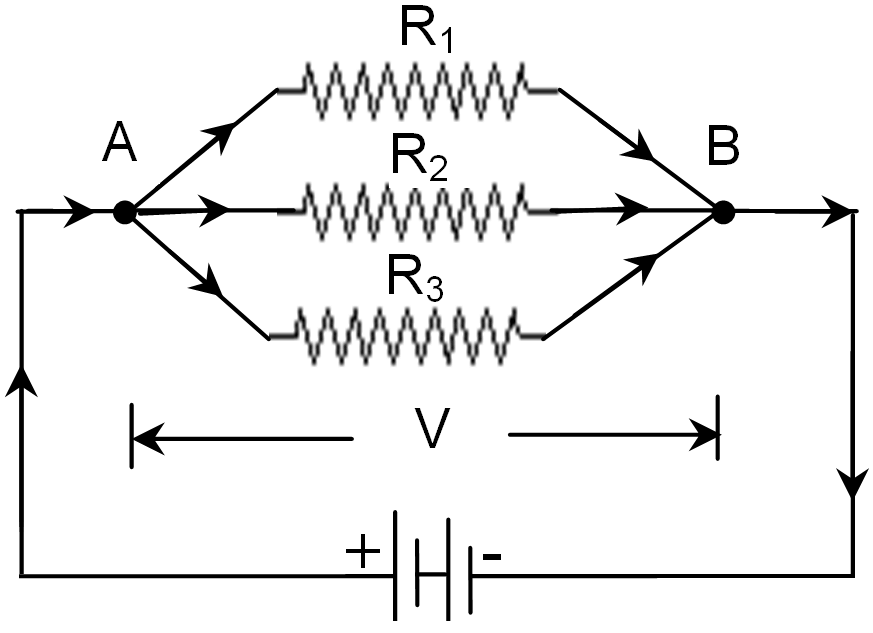When two or more resistors are connected across a common point so that same current flows through different paths they are said to be connected in parallel. Suppose three resistors R1, R2 and R3 are joined in parallel as shown in figure and let the potential difference applied across point A and B be V.

Let I be the current reaching point A from the battery and I1, I2 and I3 be the current passing through resistors R1, R2 and R3 respectively. Here it is clear that total current:
I = I1 + I2 + I3 ![]() (1)
(1)
According to Ohm’s law
V = I1R1 = I2R2 = I3R3
or I1 = ![]() , I2 =
, I2 = ![]() and I3 =
and I3 = ![]()
If Rp is the resultant resistance of the parallel circuit, then
V = IRp
or I = ![]()
By putting the values of I, I1, I2 and I3 in equation (1), we get

or 
So, when the resistors are joined in parallel the reciprocal of total resistance of a number of resistors is equal to the sum total of the reciprocal of all the individual resistors.
Watch Video
Test Your Understanding and Answer These Questions:
- What is Parallel circuit?
